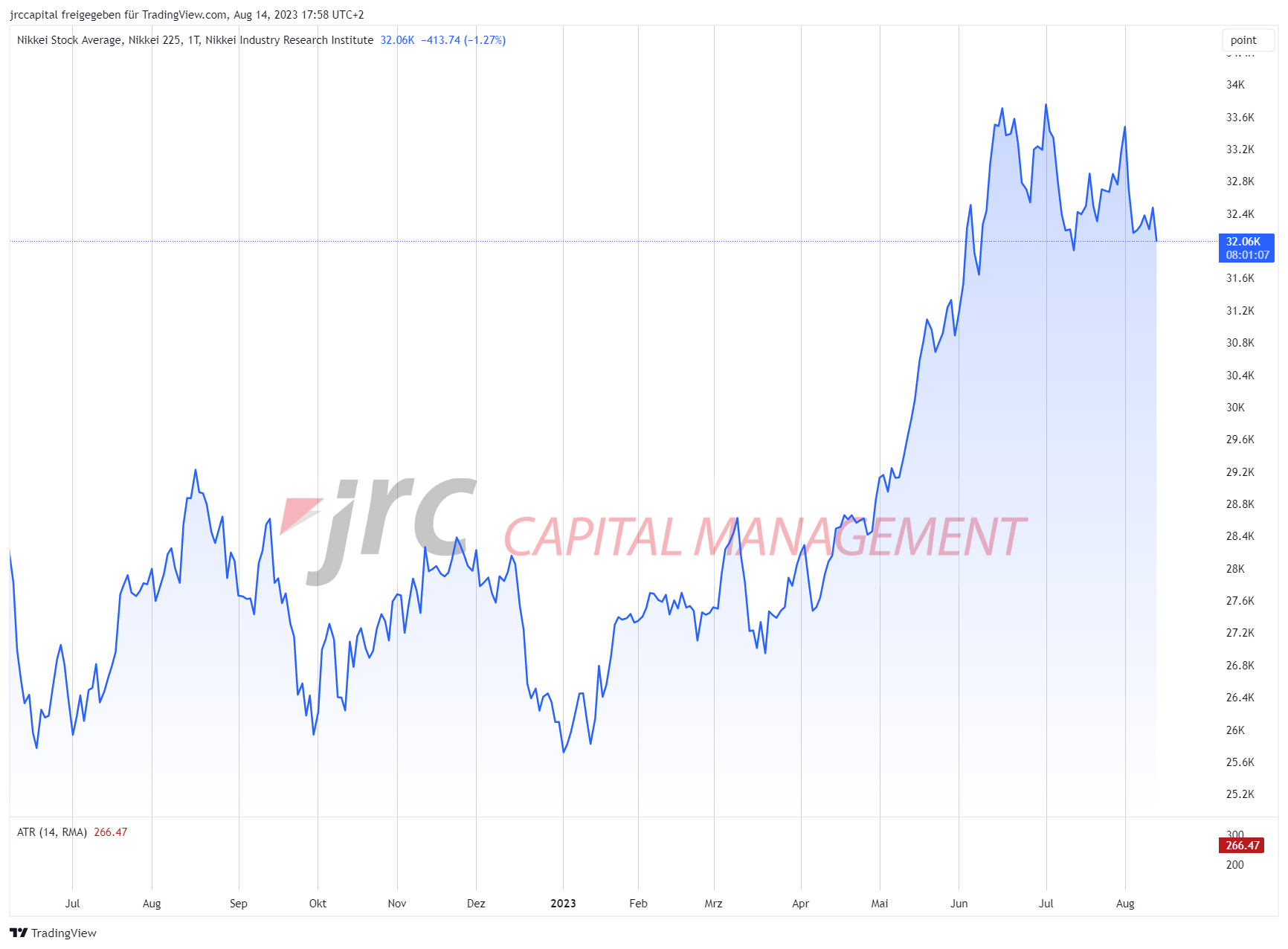This evening, Japan will announce its GDP data for the second quarter of 2023. Expectations for robust growth are based on global demand growth for Japan’s exports. Current year-on-year GDP growth is 1.3%, up from 0.4% the previous month. The forecast for this quarter is 2.7%, signaling a remarkable increase.
Higher GDP growth promises a stronger economy, with positive effects on corporate profits and investment. One possible consequence could be a rise in the Nikkei 225 Index, which represents key Japanese stocks and has already gained 12% this year. This trend could continue if GDP growth exceeds forecasts.
However, there is a possibility that increased GDP growth will strengthen the yen as it makes Japanese assets more attractive and spurs speculation about tighter monetary policy on the part of the Bank of Japan. This year, the yen has already lost 4% against the U.S. dollar, partly due to the central bank’s loose stance.
Excessive GDP growth could put pressure on the Bank of Japan to reconsider its expansionary policy and consider raising interest rates. This could strengthen the yen, while exports could suffer.
Furthermore, higher GDP growth could push up Japanese government bond yields as inflation expectations rise and demand for safe assets falls. This development could affect the credibility of the Bank of Japan and lead to a bond sell-off.
The market could react to GDP growth with significant reactions. A positive outlook could cause the Nikkei 225 Index to rise by 2%, while a disappointing result could lead to a comparable decline.

